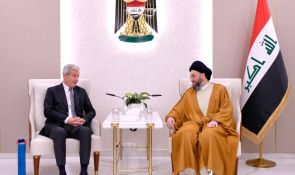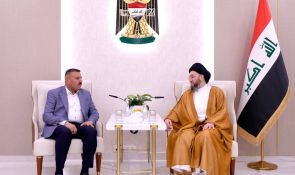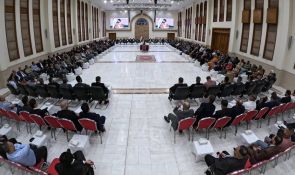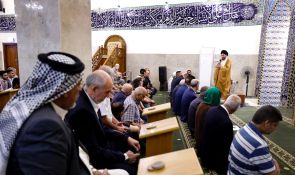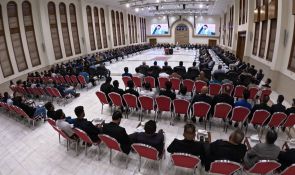Sayyid Ammar Al Hakim Calls in His Meeting with a Delegation from Self-Financing Companies to Successful Economic Policies that Protect National Products
Sayyid Ammar Al Hakim, head of the Islamic Supreme Council of Iraq, assured his solidarity with and support to the workers and members of the self-financing companies in the ministry of industry, to obtain their rights including the payment of their salaries delayed for several months now. His eminence called to exert efforts and devise plans and solutions to activate the factories and companies affiliated to the ministry, based on successful economic policies that protect the national products, and to turn them into productive and lucrative plants that ensure salaries to their workers.
This came when his eminence was meeting with a delegation from the self-financing companies affiliated with the ministry of industry from a number of provinces, in his office in Baghdad on Thursday, February 19, 2015.
For its part, the delegation extended its gratitude to Sayyid Al Hakim for his repeated efforts and calls to make justice to them and develop their plants, indicating that his eminence has an accurate idea of the crisis that the ministry of industry, and the Iraqi industry in general, is going through in both the private and public sectors.
On another hand, the leader in the Citizen’s Bloc, Hamid al Khudari, who accompanied the delegation, called upon the government to follow up on the council of ministers’ decision regarding the payment of the salaries of self-financing companies without delay. He also stressed the need to find radical and appropriate solutions to this problem, highlighting the importance of benefitting from the products of these companies instead of resorting to importation, of creating funds to grant loans to industrialists following the example of farmers, and of granting pensions to the members of these companies, as well as transferring some of them to other similar departments and institutions.


